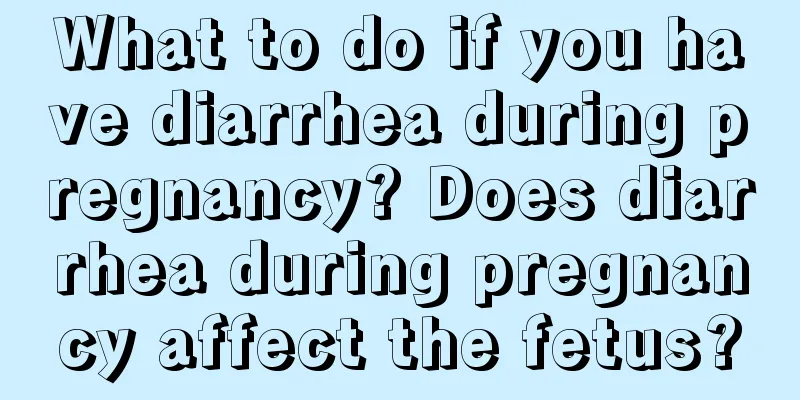Why do newborns roll their eyes when they sleep? What are the consequences of not taking a nap for children?

|
Working parents may have the habit of taking a nap, which can help us replenish our energy and be better prepared for work in the afternoon. Whether the baby takes a nap actually has a great impact. Why do newborns roll their eyes when they sleep?1. Incomplete development of the nervous system. The development of the nervous system of each person requires a certain process. Some newborns are not fully developed right after birth, so they are prone to rolling their eyes when sleeping due to incomplete development of the nervous system. In addition, factors such as shallow sleep and frequent awakening can also cause rolling eyes. 2. Lack of nutrients Children's growth and development require a lot of nutrition. Some newborns roll their eyes when sleeping because of malnutrition. There are many factors that lead to malnutrition in newborns, such as poor nutritional quality of breast milk, poor gastrointestinal function of newborns, weak absorption ability, and failure to feed newborns enough. 3 Dreaming When a newborn is sleeping, it is possible for him to dream. This is a normal physiological reaction. When dreaming, the brain is active, which will affect the nerves of the eyeballs, so the newborn's eyes will keep turning. During the turning process, the white of the eye may stay in an abnormal place, so the newborn will roll his eyes when sleeping. 4 Eye diseases There are many types of eye diseases, such as inflammation or nerve abnormalities. If a child has problems with his eyes, he may roll his eyes while sleeping due to eye swelling, pain or repeated inflammation. What are the consequences of not taking a nap for children?1. Affects memory. After playing in the morning, the baby's body is easily tired. In a tired state, the baby's memory will decline. Relieve fatigue and develop a good habit of taking a nap, and the baby's memory will also improve. The baby's nap time should not be too long. Sleeping too long will easily cause nightmares for the baby, and the brain will be tired after waking up, and the baby will not be able to remember things. 2 Weakened digestive ability Indigestion is a common symptom in babies, mainly due to improper diet. One of the ways to relieve indigestion and enhance digestive function is to take a nap. Sufficient sleep can relieve the baby's gastrointestinal discomfort and improve the baby's appetite. 3. Not conducive to relieving sad emotions. Babies tend to feel sad when they hear their parents quarreling or see tragic scenes. Sleeping can help them calm down. 4. Not conducive to improving immunity Taking a nap can enhance the activity of immune cells in the baby's body and improve the baby's disease resistance. When the baby's immunity is improved, the disease will naturally "stay away". In order to keep the baby healthy, parents should let the baby develop a good habit of taking a nap. What bad habits affect your baby's sleep?1. Let the baby sleep under the quilt When the weather is cold, parents often cover the baby's head under the quilt to keep the baby warm. In fact, this is very harmful to the baby. The high humidity in the quilt, coupled with the baby's vigorous metabolism, can easily induce "stuffy syndrome", which can cause the baby to sweat profusely or even collapse. It may also cause the baby to have difficulty breathing or suffocate. The correct way is to expose the baby's head outside the quilt when sleeping to prevent accidents. 2. Let the baby sleep naked In the summer, the temperature is high, and some parents let the baby sleep naked to keep the baby cool. However, babies have poor body temperature regulation function, and their bodies are easily cold, especially the abdomen. Once cold, the intestinal peristalsis will increase, leading to diarrhea. To prevent this, even in the hot summer, the baby should not sleep naked. The mother may wish to cover the baby's chest and abdomen with a thin layer of clothing, or put on a small belly band to protect the baby's belly from getting cold. 3. Rocking the baby in your arms When the baby cries or has trouble sleeping, young parents will put the baby in a cradle or rock the baby in their arms. The more the baby cries, the harder the parents rock the baby until the baby falls asleep. In fact, this practice is very harmful to the baby, because the rocking action will make the baby's brain sway constantly in the skull cavity, and the immature brain will collide with the harder skull, causing small blood vessels in the brain to rupture, resulting in concussion and intracranial hemorrhage. If the retina is affected, it can also cause amblyopia or blindness, especially for babies under 10 months old, which is more dangerous. 4. Mothers should let go when it is time to let go. From the moment a baby is born, they should be actively encouraged to sleep alone and gradually develop the habit. Even newborns should not sleep in the same bed with their mothers. This is because if the mother is not careful after falling asleep, she may fall on the baby and cause suffocation and death. In addition, if the mother sleeps with the baby for a long time, the baby will develop a "mother love" mentality. When the baby reaches the age of kindergarten or even elementary school, it will be difficult for them to separate from their mothers and form an independent personality, which is not conducive to their physical and mental health. What should you pay attention to when your child is sleeping?1. Frequent nightmares or night terrors. After falling asleep, the baby suddenly sits up, with eyes wide open, heavy breathing, crying, and unclear consciousness. This is night terror. If the baby wakes up because of a terrible dream, it is mostly a manifestation of nightmare. Nightmares or night terrors are not diseases for younger babies, but are due to the immature development of the brain. However, if the baby has frequent nightmares or night terrors, it is best to go to the hospital for examination to rule out brain diseases. 2. Snoring When a child sleeps on his back, he opens his mouth to breathe and snores. This may be due to enlarged adenoids and tonsils affecting breathing. Parents need to take their children to the hospital for a detailed examination. 3. The baby keeps lifting his clothes and kicking his quilt after falling asleep, and his lips are red and he feels thirsty. He likes to drink a lot of water when he wakes up. Some babies also have symptoms such as fever in the palms and soles of their feet. It is very likely that the baby has a respiratory disease. Parents should take the child to the hospital for diagnosis and treatment as soon as possible and take medicine under the guidance of a doctor. 4. If a child cries constantly while sleeping, often shakes his head, scratches his ears with his hands, or has a fever, he may have otitis externa, eczema, or otitis media. Parents should pay attention to whether their child's ear canal has redness or swelling. If so, take the child to see an ENT doctor. 5. Tossing and turning in sleep If the child keeps tossing and turning after falling asleep, and has symptoms such as bad breath, shortness of breath, abdominal distension, red lips, and dry stool, it may be due to food accumulation. Then parents should pay attention to improving the child's diet structure. |
<<: What is milk spurt? 5 tips to stimulate milk spurt
>>: What are the reasons for choosing a caesarean section?
Recommend
Do newborns need to drink water when they are breastfed? Do newborns need to drink water?
Do newborns need to drink water after breastfeedi...
Why do you lose weight so quickly after giving birth? 3 reasons for rapid weight loss
First, insist on breastfeeding after giving birth...
How should pregnant women take care of themselves? The second
Many pregnant women do not have very good physica...
Can stretch marks be prevented? The effect is not very good
Can stretch marks be prevented? Of course they ca...
Can children with allergies be vaccinated? Can children with allergies eat eggs?
It is normal for children to have allergies, beca...
Why is it easy for second children to be born prematurely? Will second children definitely be born prematurely?
Why is it easy for second children to be born pre...
Should salt be added to baby food? Can salt be added to baby food?
Making baby food is a gradual process. As the bab...
What to do if your baby has a cold? Should your baby take medicine if he has a cold?
The weather has changed a bit quickly these days,...
How to make osmanthus wine? Can pregnant women eat osmanthus wine?
It is the season of sweet-scented osmanthus again...
At what age does a baby's intellectual development complete?
Parents love smart babies, and mothers should pay...
How about Penaten talcum powder? Is Penaten talcum powder good?
How about Penaten baby powder? In summer, many ba...
Can pears be eaten cooked? What are the effects and functions of eating cooked pears?
Pears are one of the most common fruits on the ma...
What is the difference between left and right abdominal pain during pregnancy? How to prevent abdominal pain in early pregnancy
Abdominal pain is a very common phenomenon among ...
What are the reasons for insufficient breast milk? What should I do if I don’t have enough breast milk?
What are the reasons for insufficient breast milk...
Can children's throat herpes heal itself? How to prevent babies from getting herpes
Spring and autumn are the peak seasons for herpes...









